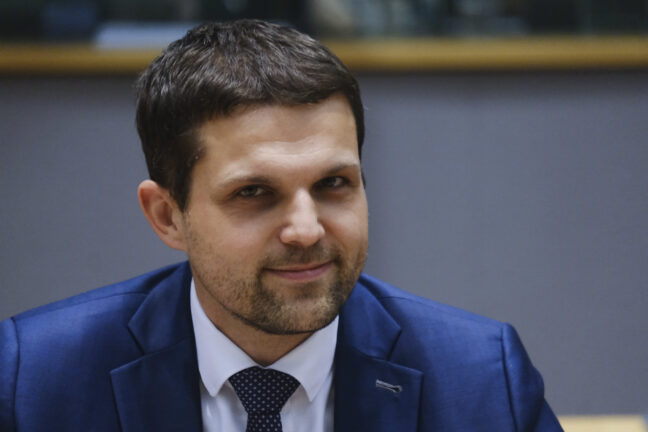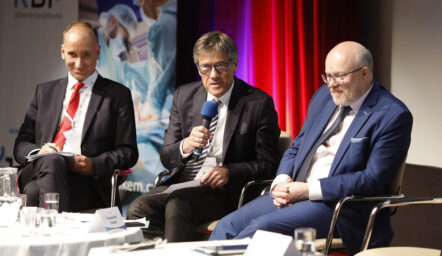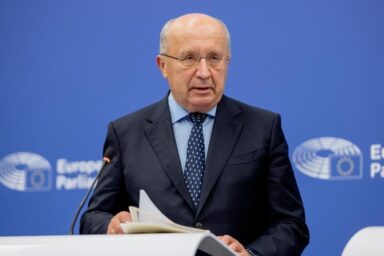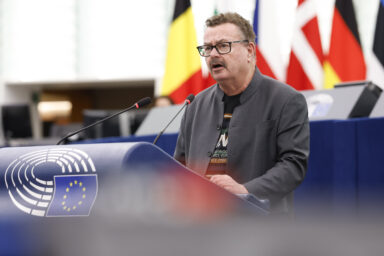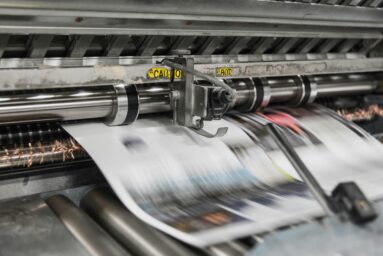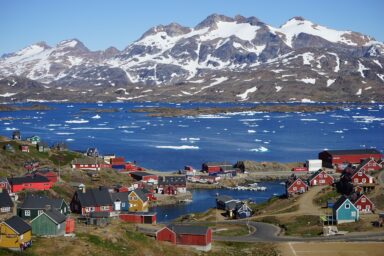When a legislative proposal draws criticism from both sides of the aisle, it tends to be good, says Czech Minister of Environment Petr Hladík (EPP) about the Clean Industry Deal. Speaking to EU Perspectives, he appreciated the CID’s focus on circularity, but pointed out that most of the provisions were too vague. He also exhorted the European Commission to deal with illegal cross-border transport of waste, and to act against online marketplaces from third countries.
At the environmental council meeting on Thursday, you brought up a point about illegal waste shipments. Could you briefly explain the issue?
Czechia and other member states are facing a growing number of cases of illegal waste shipments. We have information from the police and also from the environmental agency that the number is still going up. So we relayed the information to the European Commission and asked for three concrete steps to ensure increased cooperation between our countries.
We will get to those, but could you begin by explaining what sort of waste we are talking about and how dangerous it is for the environment?
That varies. In some places it’s plastic laminate, for example parts of old planes or old turbines, parts of old cars and other machines. In other places, it’s old textile. What companies do is that they transport it illegally to brownfields. Not to places where such kind of material can be recycled. Not to mention that some of the waste in question cannot be recycled at all. It’s the type of waste that you would usually transport to a landfill. Obviously, to transport it to a landfill in Germany or in Italy is much more expensive than to export it to a brownfield in some other place in Europe and dispose of it that way. In the context of the Czech Republic, it’s often not a traditional brownfield but a former farming co-op, a part of a village which historically was a farm but now it’s not being used.
You already mentioned that the issue is becoming more and more pressing. Just how many new cases are they?
Based on the statistics from the czech Customs Administration, we detected three times more trucks with illegal waste last year than in 2023
You brought the point forward on behalf of the Czech Republic. What other countries are dealing with the issue?
I’m very happy that many countries spoke in favour of adressing the point. Especially France, Slovakia, Slovenia, Latvia, Lithuania, Hungary, Romania or Bulgaria. It’s not an issue that only Eastern Europe is dealing with. My colleague, the environmental minister of France, also described it as an issue there.
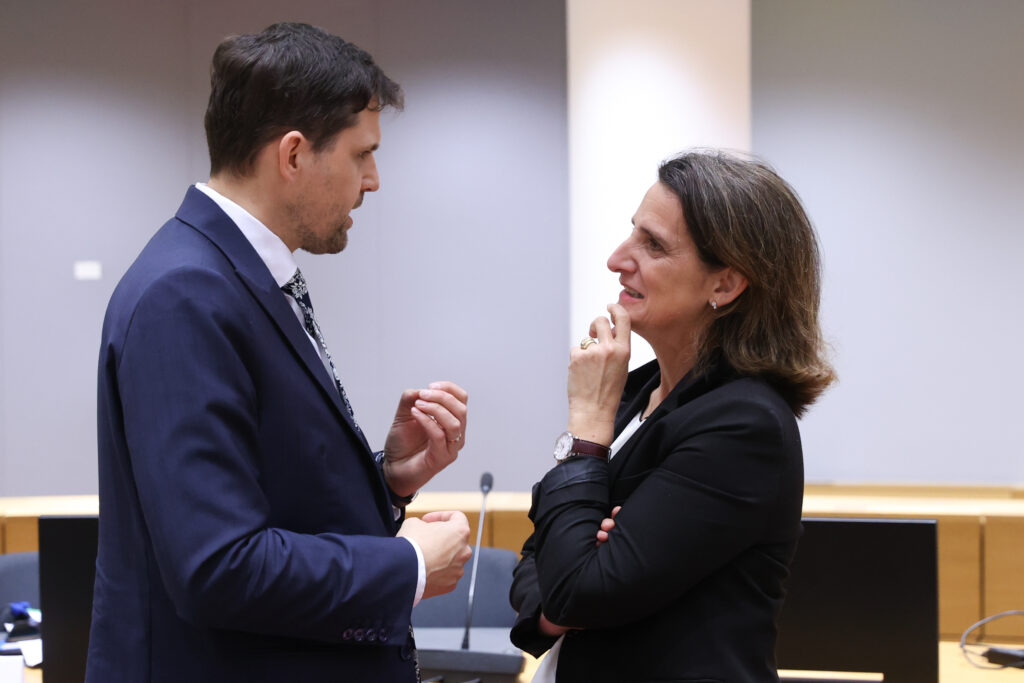
Single contact point and a new database
When it comes to the Czech Republic, the illegal waste is usually transported from Germany. Do the authorities over there cooperate when solving the specific cases?
It’s not only Germany but also Italy, Poland or Austria However, I must say that especially German officials cooperate very well with my ministry. You know, it’s very easy to transport anything from Germany to Czechia. But once you want to return the illegal waste, it takes many, many weeks. So that’s one of the things we want from the Commission — to improve the processes to be more effective, to make sure that the whole process is quicker.
What are the specific steps that you’re proposing? You already mentioned that there are three main points.
First of all, we need to establish one contact point in each country. For example in Germany, there are more than 300 authorities that we have to communicate with depending on the respective districts. The second point is, we need to set up a database of all the cases that we know of. So that we know what specific companies we need to keep an eye on. And the third point is digitalization. We reached and agreement a year ago on legislation, based on which a new digital system would be set up to share information about cross-border transportation of waste. That is positive. However, the system has yet to be formed, and we really need for it to happen as soon as possible, and to include all the necessary information.
You already mentioned that many countries spoke in favour of resolving the issue. How quickly do you think that might happen?
I think that data sharing between member states and its institutions can be established very quickly. As for the single contact points, that is something that needs to be included in waste-related legislation in every single country. How quickly that can be done, I’m not sure. And as for the European waste shipment regulation, that is now up to the Commission to create the IT system.
Given that we operate within the Schengen area, is it feasible to completely avert the issue? Or is it more about making sure that quick solutions are in place once it does happen?
First of all, let me make clear that we totally support the Schengen system and the EU single market with unified rules for companies, whether they are in Ireland, Portugal or Czechia. But in the context of waste, there are three lists. The first one is called the green list, featuring easily recyclable waste types, ones that are very easy to transport across Europe. Then there is the yellow list, registering the types of waste that are more difficult to recycle, or that require a very specific technology to do it. If you want to transport those types of waste, it needs to be authorized by both countries. In our case, both Germany and Czechia. The waste we’re talking about is on the yellow list, yet the companies responsible claimed it’s waste that is on the green list. Third, we have the red list, with waste that cannot be transported across borders.
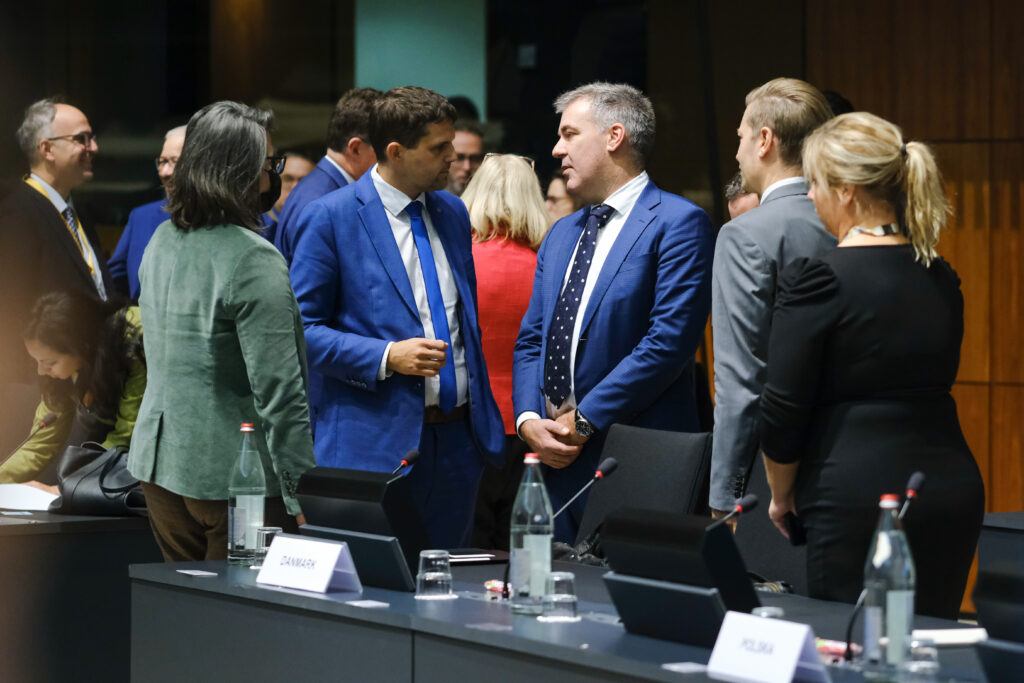
Security and climate efforts can go hand in hand
One of the other points on the agenda today was the Clean Industrial Deal. With some people claiming it’s too green and others saying it’s not green enough, what do you — as Minister of Environment — think?
Usually when a proposal is criticized from both sides, it is a good one. What I think is positive is its focus on circularity, EPR (extended producer responsibility) systems and the green VAT. Especially circularity, that’s something that can be very positive for our industry, aiming to increase the use of recyclable materials and to decrease the need for raw materials. Usually, the latter need to be imported from third countries. Another positive I would like to highlight is the simplification of CBAM, the carbon border adjustment mechanism. The proposed simplification would cut 90 percent of the administrative burden while still applying to around 98 percent of emmissions.
What I would say is not so positive about the Clean Industrial Deal is that it’s all very vague. In many cases, there are no specific steps outlined. For example when it comes to the energy prices. And it is a very important topic, not only for households but also for industry.
You mentioned circularity. So in other words, do you think that our need for strategic autonomy, can go hand in hand with our climate goals?
Geopolitically, we are in a difficult situation and we have to think about out safety. That is reflected in initiatives like ReArm Europe. But safety is not only about defense but also about energy security. And it’s very easy to combine energy security with decarbonization, because right now we import oil, we import gas and if we are able to produce all the energy we need in Europe, it could be safer, cheaper and also bring benefits to our industry. Of course, we need to find a combination of both renewable sources of energy and nuclear energy.
One of the initiatives which you have been vocal about lately is the action against cheap goods imported from third countries, mainly from China. The European Commission already announced some steps, urging member states to agree on a customs reform and proposing a new handling fee. What is your opinion on the measures announced by the Commission?
That was one of our initiatives. On the EU level, we brought up the topic, saying it’s not possible for online marketplaces from third countries to have different conditions from EU manufacturers when it comes to product safety, packaging, sustainability and so on. I am very happy that the Commission reacted and produced a paper with new policy initiatives with regards to Chinese e-shops, such as Temu, Shein, AliExpress, and so on.
The issue is that the EU should share one single market. But in reality, we still have 27 different national markets and 27 systems of extended producer responsibility. And as of today, each marketplace has their own agreement with each member state.
To add to that, there are different manufacturers selling on the marketplaces. On Shein or Temu, it’s around half a million manufacturers each. All of them should pay a recycling tax in Europe but they don’t. And nobody, apart from the marketplace itself, knows who the manufacturers are. If we’re talking only about the Czech Republic, we have lost around 100 million Czech crowns because of that. If we talked about the EU as a whole, the number would reach billions of euros.
